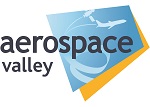KEYNOTE SPEAKERS
Ahmad-Reza Sadeghi, TU Darmstadt, Germany
Wednesday 1 June, 2022 - Auditorium 10:30-11:30 am

Download keynote 1 presentation
Biography
Ahmad-Reza Sadeghi is a professor of Computer Science and the head of the System Security Lab at Technical University of Darmstadt, Germany. He has been leading several Collaborative Research Labs with Intel since 2012, and with Huawei since 2019.
He has studied both Mechanical and Electrical Engineering and holds a Ph.D. in Computer Science from the University of Saarland, Germany. Prior to academia, he worked in R&D of IT-enterprises, including Ericsson Telecommunications. He has been continuously contributing to security and privacy research field. He was Editor-In-Chief of IEEE Security and Privacy Magazine, and currently serves on the editorial board of ACM TODAES, ACM TIOT, and ACM DTRAP. For his influential research on Trusted and Trustworthy Computing he received the renowned German “Karl Heinz Beckurts” award. This award honors excellent scientific achievements with high impact on industrial innovations in Germany. In 2018, he received the ACM SIGSAC Outstanding Contributions Award for dedicated research, education, and management leadership in the security community and for pioneering contributions in content protection, mobile security and hardware-assisted security. In 2021, he was honored with Intel Academic Leadership Award at USENIX Security conference for his influential research on cybersecurity and in particular on hardware-assisted security.
Presentation title :
In Hardware we Trust?: The Promises, Struggle, Challenges and Future of Trusted Computing
Abstract:
The large attack surface of applications and commodity operating systems has motivated the research, development and deployment of hardware-assisted security extensions to computing platformsto significantly improve the security of applications and sensitive data against various software-based attacks. However, the current trusted computing architectures seem to struggle with keeping their promises, particularly in the face of cross-layer attacks that allow unprivileged software to exploit hardware design and implementation flaws, as recently shown by, e.g., Meltdown, Spectre, and alike. Cross-layer attacks reach far beyond exploiting micro-architectural flaws and constitute a fundamental paradigm shift, disrupting traditional threat models that have mainly focused on software-only vulnerabilities and often (unjustifiably) assumed that the underlying hardware is correct and trustworthy.
In this talk, we present a brief overview of Trusted Computing landscape, its promises, pitfalls and opportunities. We then discuss the recent trends in building open enclave architectures (e.g., RISC-V-based), including our own work in collaboration with industry partners, aiming to address the shortcomings of the existing solutions. We also briefly discuss the insights we gained on cross-layer attacks and hardware vulnerability detection in the course of the world’s largest hardware security competition that we have been co-organizing with industry and academic partners since 2018. We conclude with future directions for trusted computing and the corresponding challenges.
Andreas Greff, Continental Automotive, Germany
Thursday 2 June, 2022 - Auditorium - 08:30 - 09:30 am

Download keynote 2 presentation
Biography
Andreas Greff is Head of Cross-Divisional Customer Project Management at Continental Automotive Group in the field of automotive computing platforms.
Before joining Continental, he has spent 19 years with an engineering service provider, being responsible from software development over system engineering for engine management systems to starting and heading the U.S. subsidiary. At Continental he has spent 7 years in the powertrain field, before focussing since 2016 on new, cross-domain vehicle architecture projects and the alignment of related activities within Continental and with its affiliates Elektrobit and ARGUS. In 2020 he also took over the lead for the cross-domain Customer Chief Engineers.
He has earned a master’s degree in Electrical Engineering at the Technical University of Braunschweig (Germany) and earned an MBA degree in Global Management (U.S.).
Presentation title :
The Software-Defined Vehicle as an Edge device in the IoT environment: challenges and trends
Abstract:
What will be the benefit of a software-defined vehicle and how does this impact the embedded real-time systems in the vehicles of the future? Software-defined Vehicles (SDV) enable new business models in an extending product lifecycle, separation of software & hardware, shorter development times as well as data-driven, virtual development. All these are requiring close collaboration between the automotive and software industry. Benefits from this approach can be achieved by implementation of a service-oriented architecture, addressing the market trend for further automotive domain merges into centralized compute platforms. This influences the design of those systems and the requirements for future hardware and software and its collaboration. The challenges are not only in the hardware, its mechanical implementation, and thermal situation, but the full system requires a seamless interaction with all software elements. SDV is also affecting multiple elements of the ecosystem, such as Scalable Computing Platforms, Operating System and Middleware, Cloud Connectivity, Toolchains and DevOps & Workbench. This system complexity needs to be handled in a secure and flexible DevOps environment. Trends, challenges, and Solutions for such an environment will be addressed in this keynote.
ORGANISED BY

ERTS 2022 - IMPORTANT DATES
Abstract of Regular &
Short Paper submission (4 pages) : Sept.5th, 2021
Submission deadline
extended to October 3rd, 2021 (any time on earth)
Acceptance Notification : Nov. 18th, 2021
Regular Paper for review (10 pages) : Jan. 9th, 2022
Final Paper (Short and Regular) :
Jan. 30th, 2022
Congress (new dates): June 1st to 2nd, 2022
sponsors
partners









